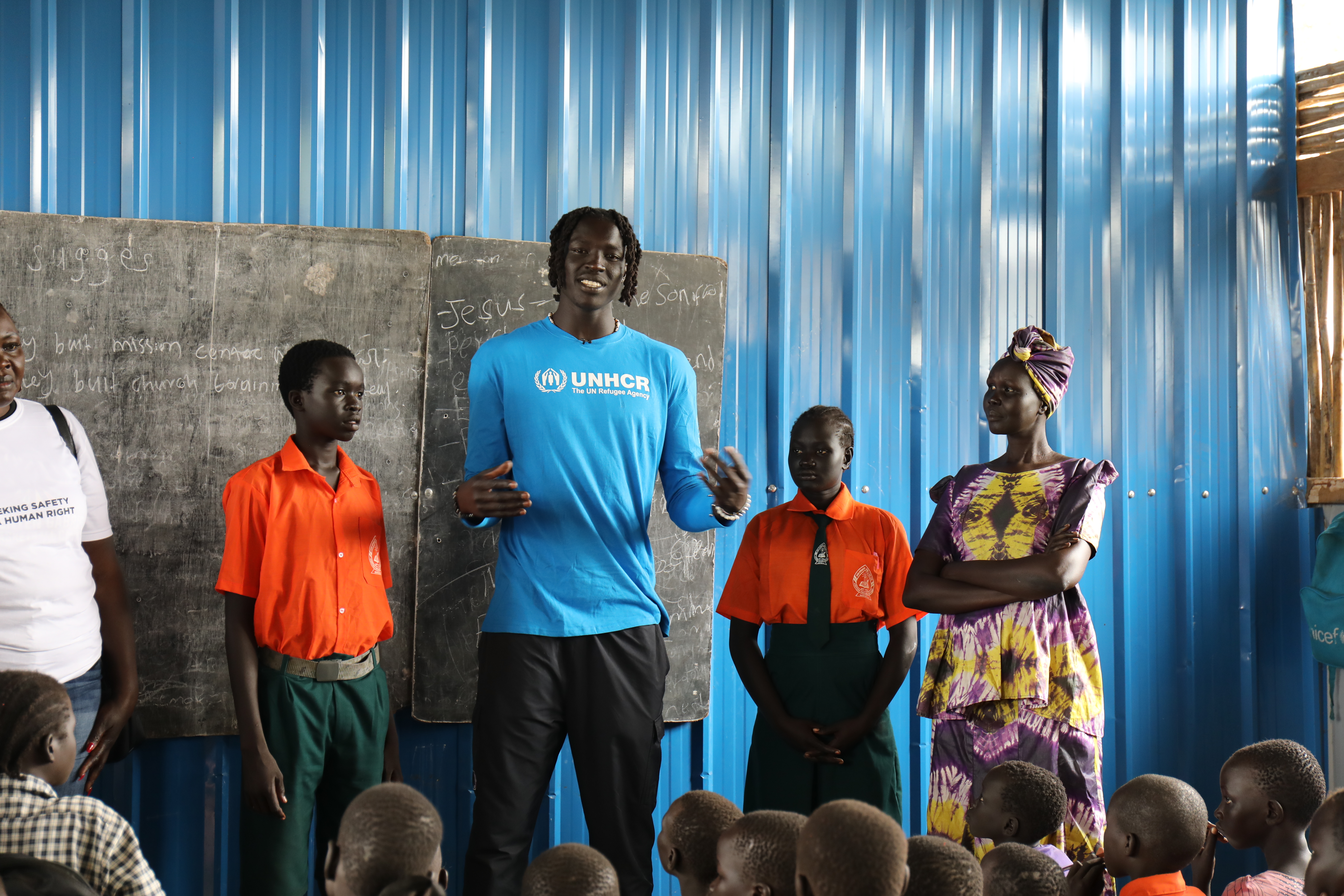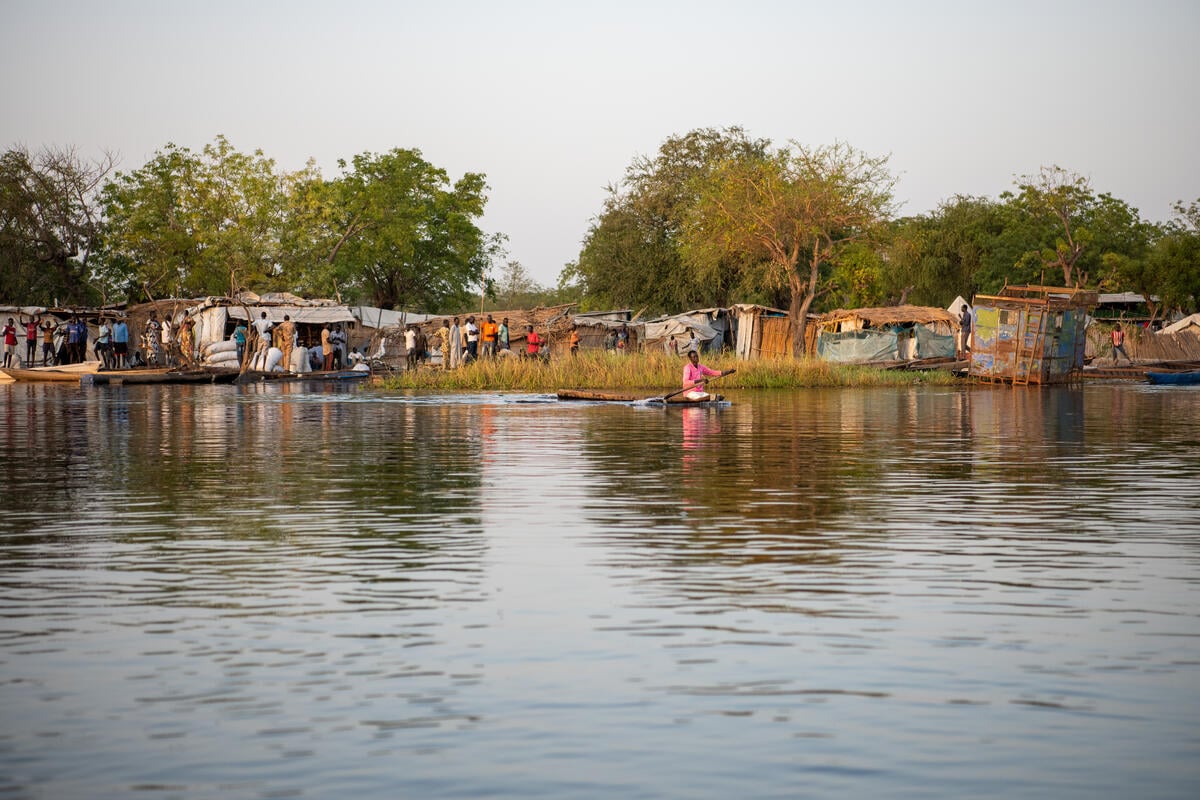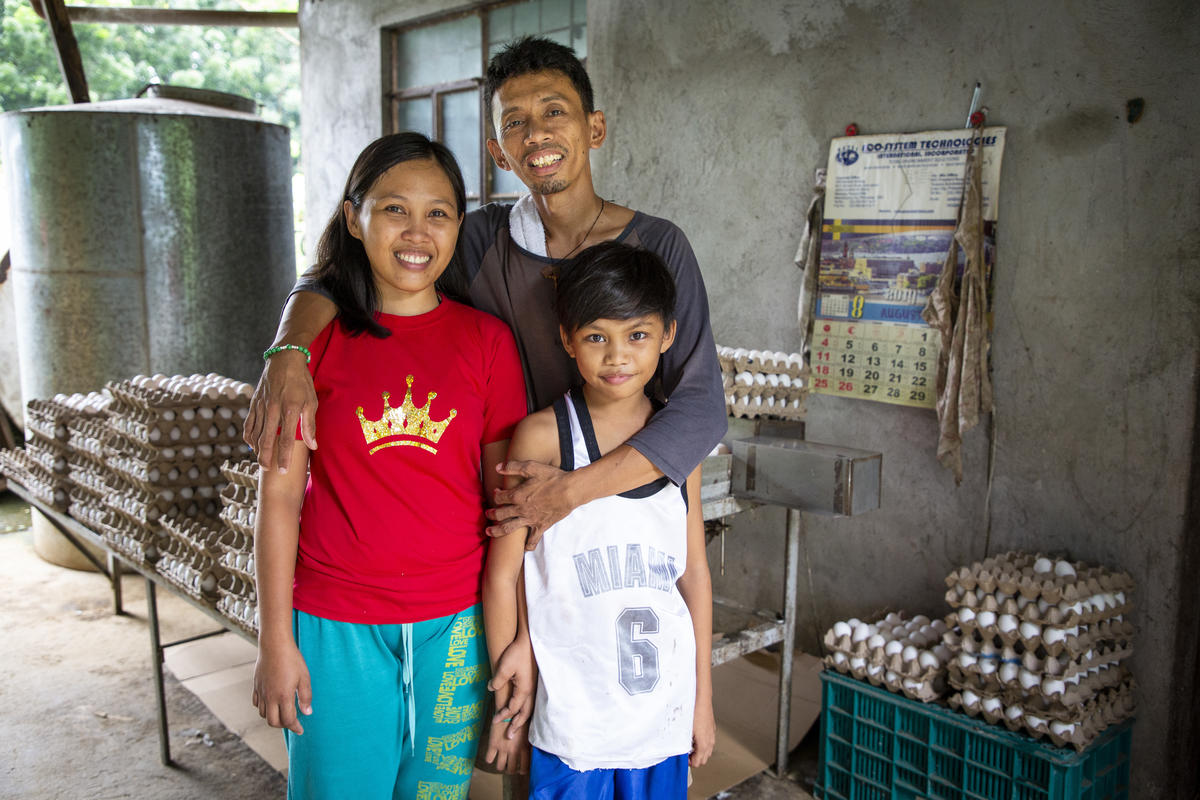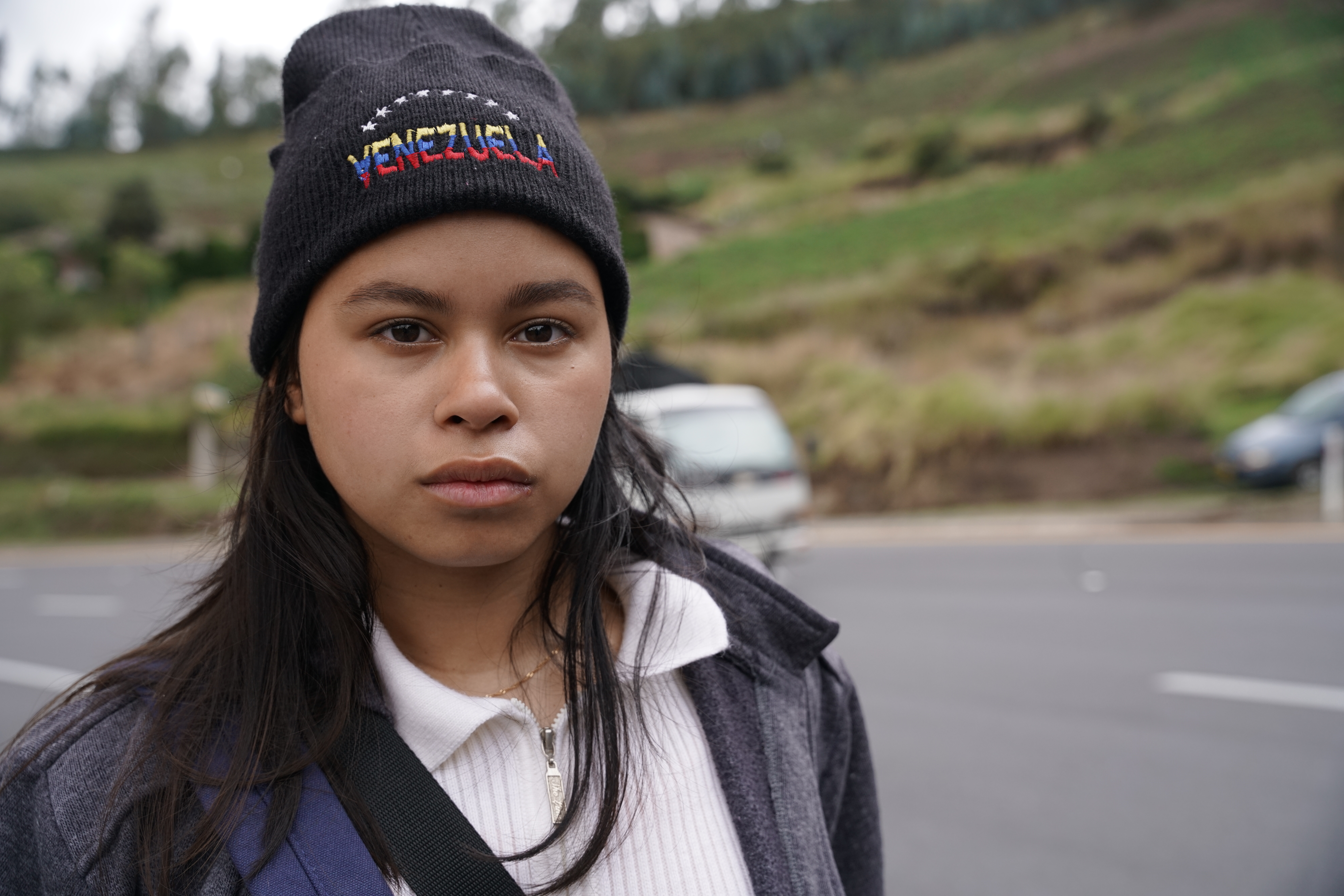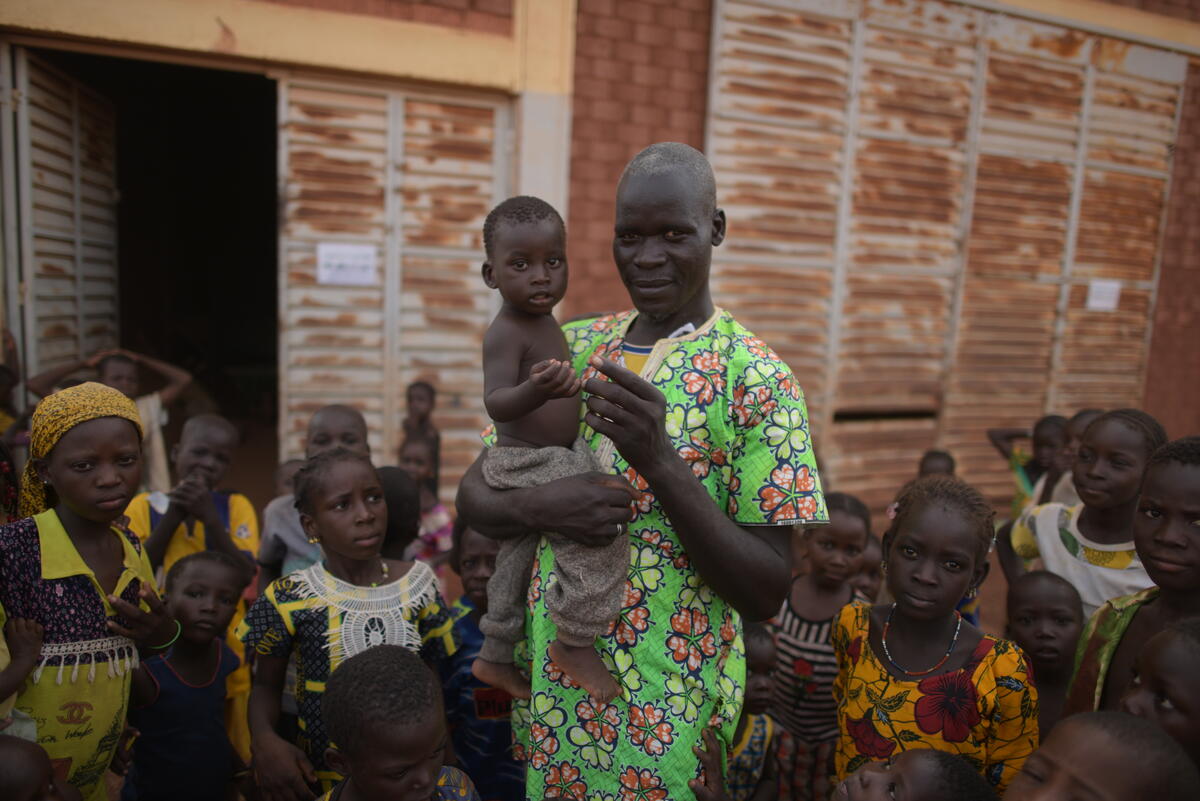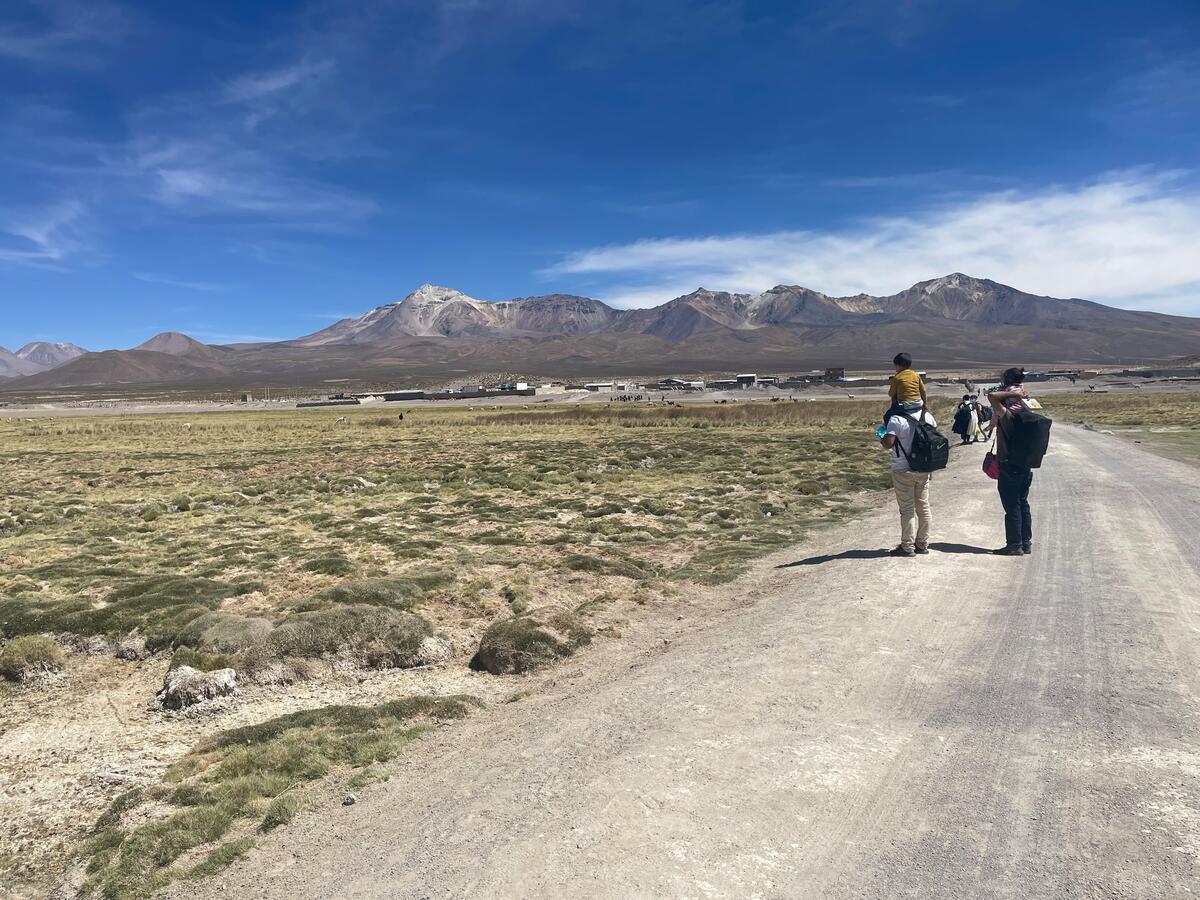UNHCR warns CAR displacement at record high, funding among lowest anywhere
UNHCR warns CAR displacement at record high, funding among lowest anywhere

UNHCR, the UN Refugee Agency, is extremely worried over continued violence in the Central African Republic, which has been causing massive new levels of displacement.
The number of Central African refugees in neighbouring countries now stands at 513,676. This is the highest number of CAR refugees seen since the start of the crisis in 2013. In addition to the refugees some 600,000 people have been forced to flee inside the country. This means that total displacement is also at its highest level ever, at over 1.1 million. Meanwhile funding, at 9 per cent, is among the lowest of any refugee situation anywhere.
Since May 2017, fresh and fierce clashes between armed groups in CAR have wrought increasing suffering, deaths and destruction of property. Many newly displaced people speak of having witnessed killings, robberies, lootings and kidnappings. Even after reaching safe locations, they often risk assault by armed groups, if they venture outside. Unable to approach aid workers, they barely have access to vital supplies. With the crisis well into its fourth year, nearly one in every two Central Africans still needs humanitarian assistance or protection to survive. If the violence goes unchecked, this could fully reverse progress towards recovery in the country.
The Central African Republic had been experiencing a gradual transition towards peace and stability since late last year, when both refugees and internally displaced people started to go back home. Now, insecurity is plaguing areas in the centre, northwest, east and south-east of CAR – some not previously affected by the conflict, like Bangassou or Zemio.
Insecurity is also preventing us and other humanitarians to assess the full extent of damage or displacement from the recent violence. Some of our planned humanitarian deliveries by air have also been delayed or blocked, due to the armed groups’ presence. Moreover, aid agencies, including UNHCR, are increasingly among those targeted by armed groups and have, in some instances, been compelled to temporary withdraw their personnel.
Despite the challenges, we continue to help those displaced in areas like the Haute-Kotto provincial capital of Bria, which was at the centre of much of the displacement in the east.
However, the consequences could be disastrous, if there are no further resources to meet the mounting needs. UNHCR has appealed for US$209 million in 2017 to assist the internally displaced inside CAR and meet the needs of Central African refugees in the region. Nevertheless, a mere 9 per cent has so far been received.
Meanwhile, in the Democratic Republic of the Congo, the number of Central African refugees rose to 167,004 by the end of August. Almost 40 per cent arrived due to the recent fighting in CAR. Many have fled to remote areas, with scarce access to food, clean water or medical services. UNHCR has been able to provide relief items to close to 18,000 new arrivals, despite the fact that heavy rain, the lack of roads and the refugees’ scattering over hundreds of kilometres make humanitarian access very difficult.
An additional 236,732 Central African refugees are hosted in Cameroon. Among them, over 7,000 people have fled there since July to escape violence in western CAR. They settled with local communities already hosting thousands of Central African refugees and sharing their meagre resources in water, food, health and basic social services.
In Chad, the number of refugees from CAR stood at 74,450 by the end of August. Most of those arriving during the summer months were women and children, escaping violence in CAR’s northwest. UNHCR distributed relief and shelter items to the new arrivals, and transferred them to villages, where they live side by side to the local population. An additional 31,499 refugees from the CAR are hosted in the Republic of Congo.
For more information on this topic, please contact:
- In CAR, Djerassem MBAIOREM, [email protected], +236 72 30 12 88
- In Geneva, Aikaterini KITIDI, [email protected], +41 79 580 83 34


